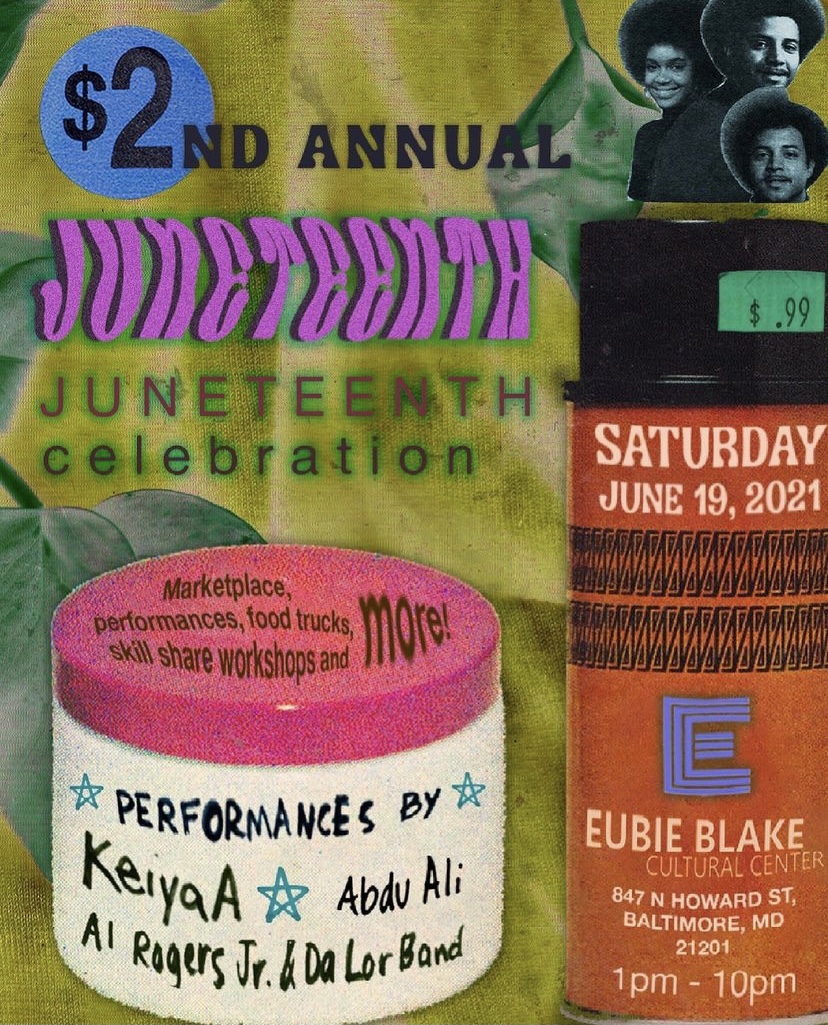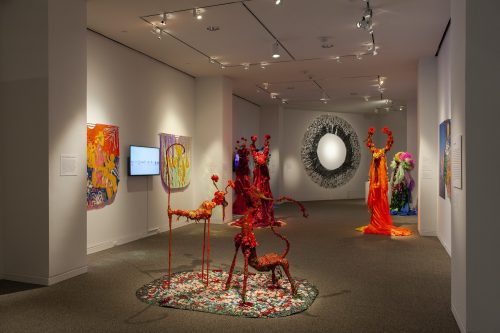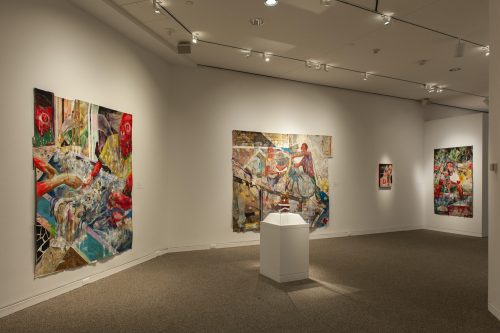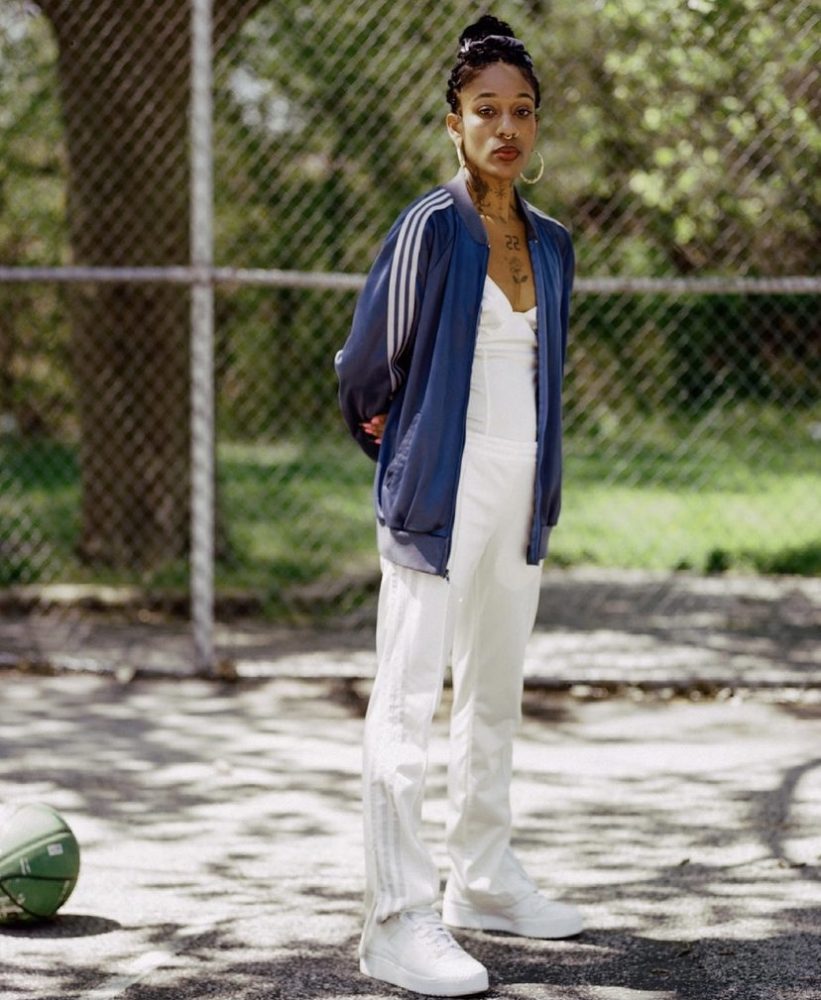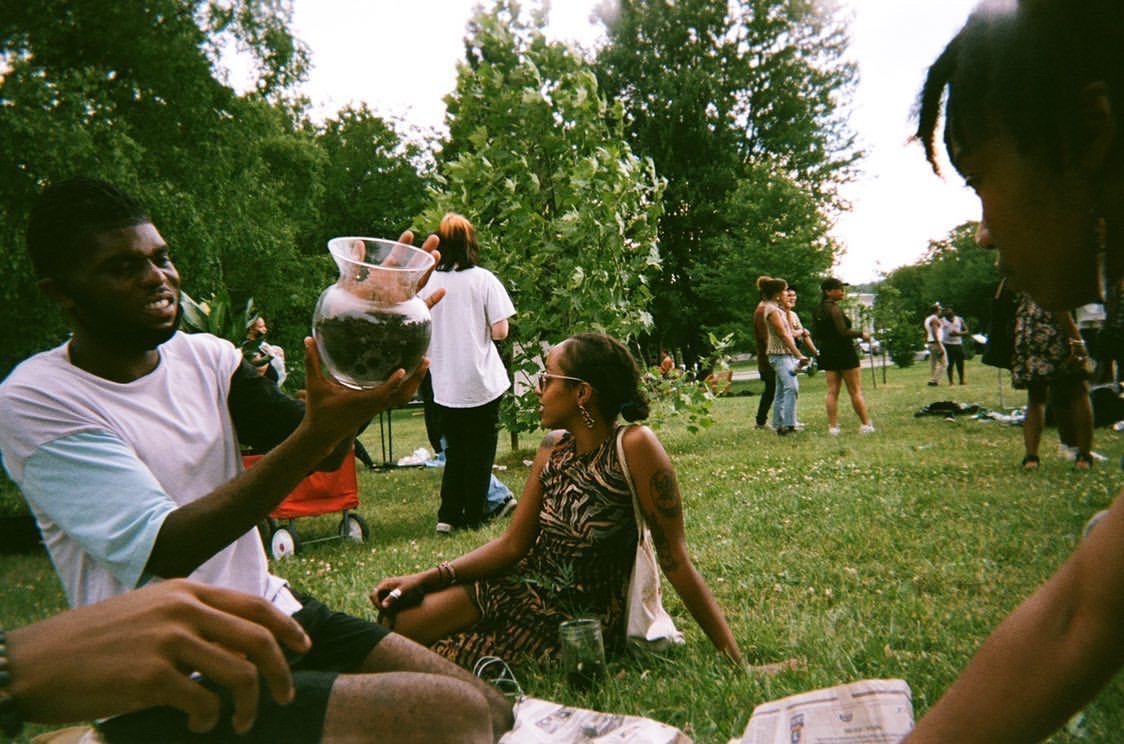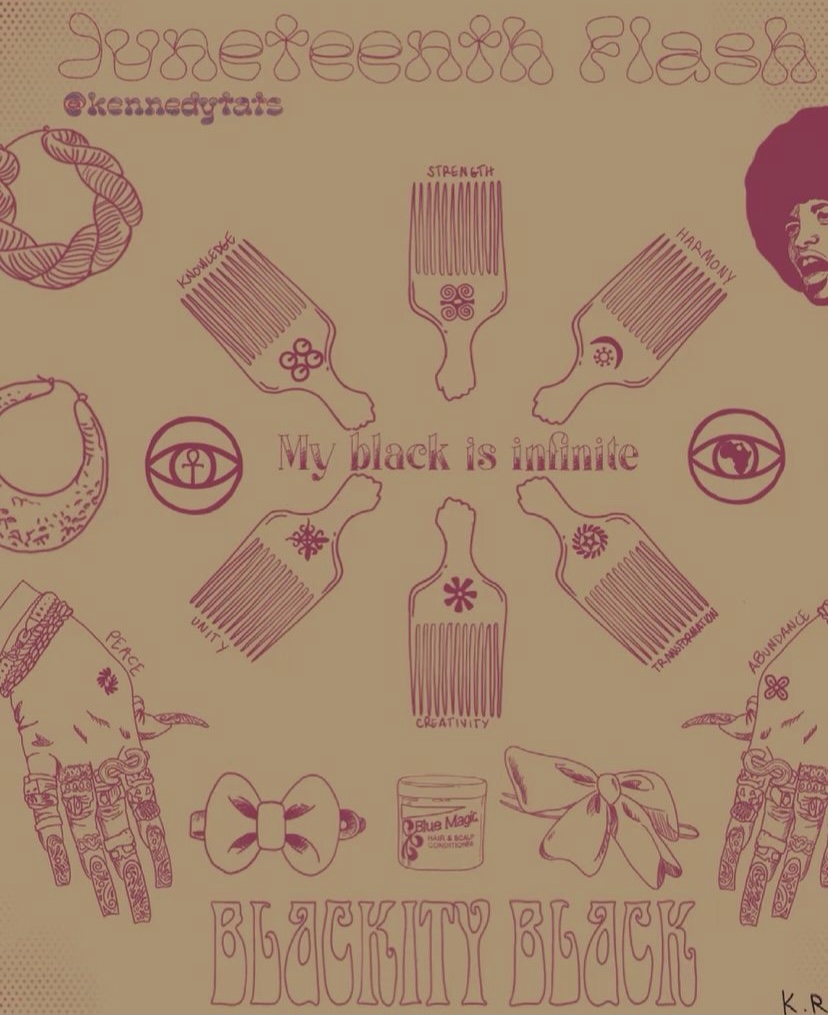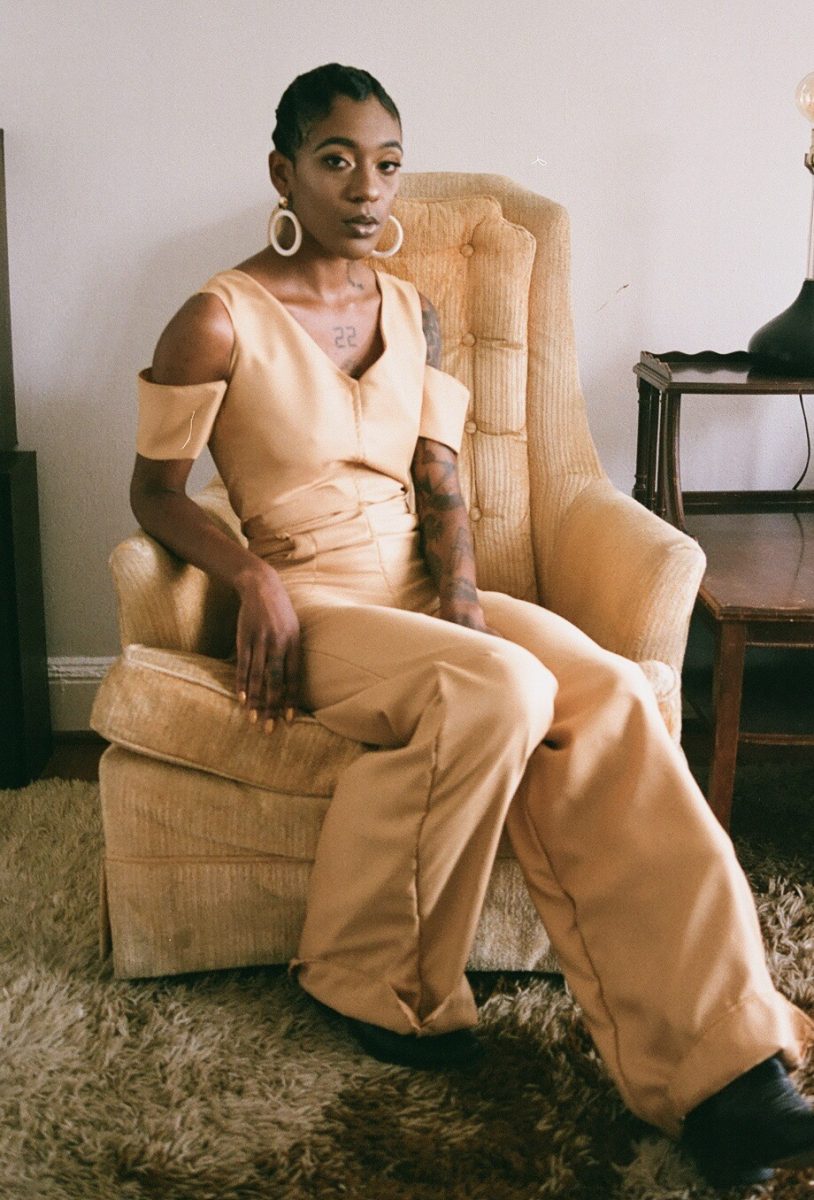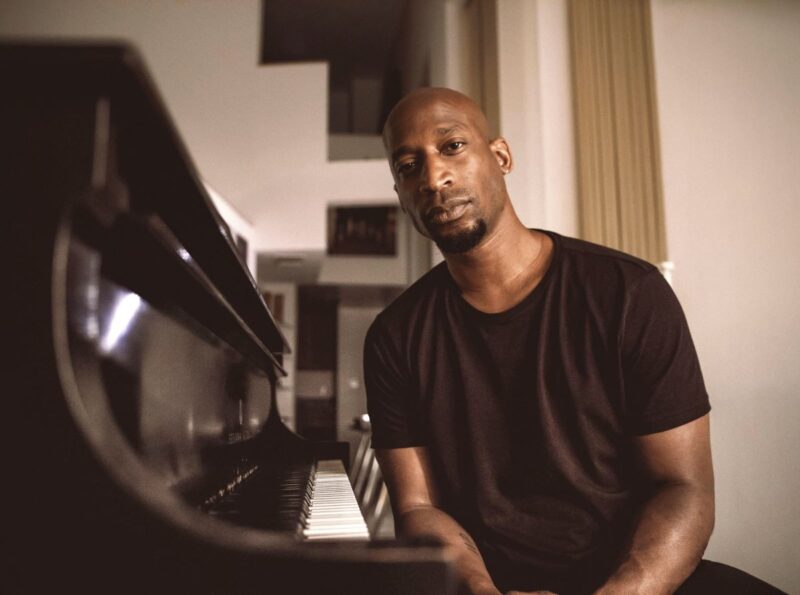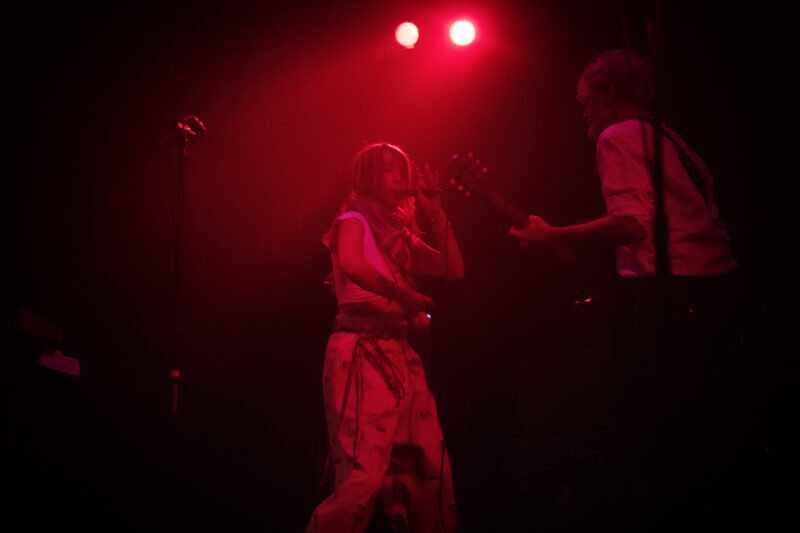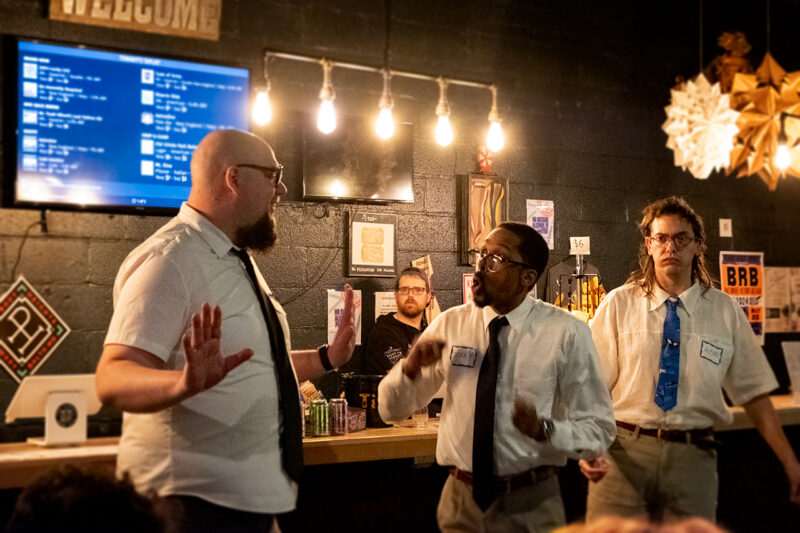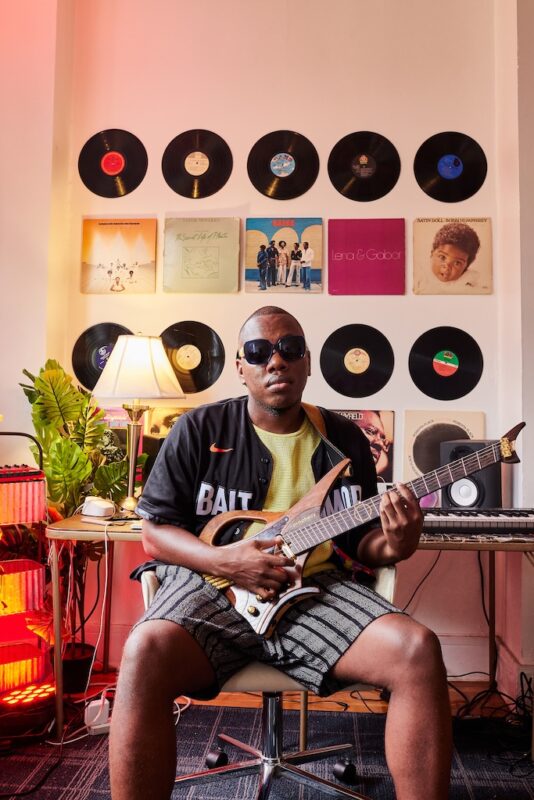It’s like a mini-festival. You’re putting all of this work and intentionality into it, and it’s going to be something that people can come and be there all day, which is really beautiful especially after a year of not being able to be around each other. It’s gonna be incredible.
You know what I’m saying? And then we’ll be popping out on Emancipation Day! I’m so excited for all of the looks. I’m gonna be going crazy. Like, oh my God, everybody is so beautiful!
I would say that it is festival-level, which is why I’m overwhelmed, but it’s a good overwhelmed. I feel like I get a high from this type of overwhelming feeling—especially with curatorial projects. With that being said, I know in the future I need to figure out some sort of system around volunteers and being able to have people on a payroll type of situation.
Yeah, because it’s just going to get bigger!
Exactly! Last year Bramble Bakery donated a bunch of baked goods to the Juneteenth event. This year, I asked if they could do the same, but also do a big Juneteenth cake just to thank and celebrate the performers and the volunteers. I’m really excited about that because I’m such a treat person.
Who are your biggest artistic inspirations? It could be an artist, a muse, who makes you want to do the work that you do?
In terms of my artistic inspirations, I will honestly say, I love Stevie Wonder. I love his Taurus, Venusian, very sensual ways. Stevie Wonder for sure. Stevie Wonder. He’s just a no-brainer.
That’s a great answer. It’s a big question, but Stevie Wonder’s everything.
He is one of my biggest no-brainer type of inspirations. Musically, of course, him. I used to study music. In terms of style-wise, Prince. Prince also embodies Venusian ways about him. It was recently his birthday. It’s so funny, he is always resurfacing on the internet at some point. He has a Venus in Taurus and so do I, so I was like, that makes so much sense aesthetically. He is an artistic inspiration for sure. I would say, artistically, definitely him more than Stevie Wonder, style-and-sensuality-wise.
My Venus is in Libra and I am a Taurus Rising. What is your sun sign?
I’m an Aries on the Pisces cusp and I am a Leo rising, Taurus moon, Taurus Venus. So you’re a Taurus rising!
Yes, so I got it—when you said treats, I said yes! My sun sign is Libra.
So you’re ruled by Venus, you’re Venusian all the way. Aries and Libras are hand in hand; it’s funny because my son is a Taurus, Libra rising.
He’s going to be around art all the time.
He’s already a little artist. I’m so honored.
I worked with Amira Green, and she always posts the paintings that he makes, and I’m always like, “Okay! Look at this baby painting!” He’s very good!
That’s another one of my artistic inspirations, my friend Amira. She just dropped the Adidas project, and I was so honored to be a part of that. Her work is phenomenal. I’m always inspired by her artistically. And she’s a Leo so, you know, we just connect.
It’s always nice to work with her. She’s wonderful. That brings me to the next question: Who are some of your favorite artists and creators in Baltimore?
Definitely Amira, of course. Theresa Chromati; she isn’t living here right now, but she’s from here. Devin N. Morris also. Black Assets, she does a lot of organizing and curatorial work in the spoken-word scene, she is phenomenal. She’s running shit with that whole community, she’s definitely a beautiful person, she just has a way of having the audience interact. She’ll actually be helping me host the Juneteenth celebration. I would have to say Brandon Woody.
Is he performing too?
Yes, he is. Brandon for sure, Al Rogers, Alanah Nicole, Sharayna Christmas—that’s like my big sister. I’m always inspired by the work that she does with the youth, just as a fellow mom.
Necessary Tomorrows, right?
Exactly, Necessary Tomorrows and Muse 360. So phenomenal. That’s a few folks that I can think of off the top of my head. Oh, and ChildishxTheo on Instagram, he does videography and he has like this early 2000s steeze.
